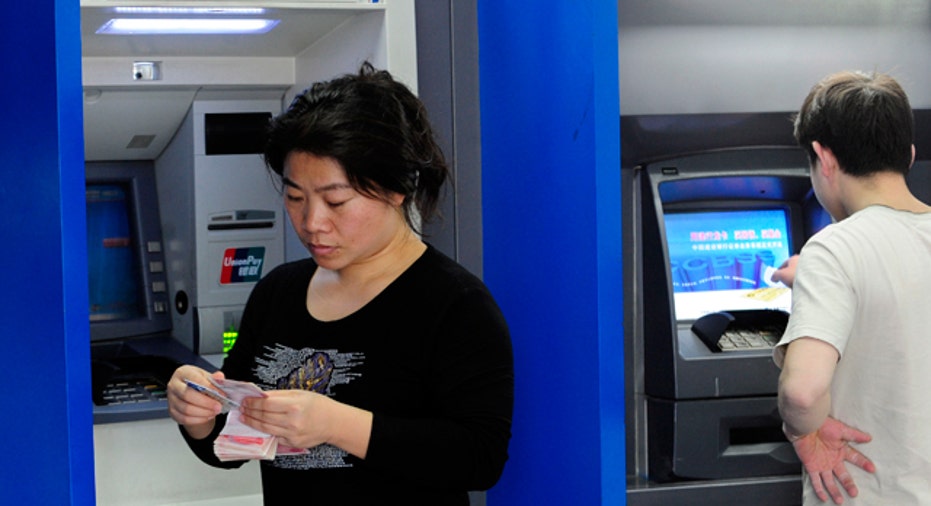Are Credit Union Credit Cards Better Than Others?

Americans are flocking to credit unions this year in search of an alternative place to put their money. Many are fed up with big U.S. banks, which have emerged from the recession -- and a multibillion-dollar bailout -- with a rash of new fees.
Should they do the same with their credit cards?
The answer isn't the same for everybody. Credit unions offer credit cards with many of the same perks provided by the big banks. But they also come with unique benefits and restrictions that can make it tough to choose.
"This is something you should do proactively, not reactively; not because you're angry at a bank," says John Ulzheimer, president of consumer education at SmartCredit.com.
Bankrate outlines the good, the bad and the tricky of credit union credit cards to help you choose.
The Good
One of the most flattering features of a credit union credit card is the annual percentage rate. The average rates on credit union credit cards are often several percentage points below those offered at big banks, says Bill Hampel, chief economist of the Credit Union National Association, or CUNA, a trade group for U.S. credit unions.
For example, the average APR on a credit union rewards credit card was 9.38% as of Nov. 1, compared with 12.89% for big banks, according to Informa Research Services on behalf of CUNA.
That's not all. Credit union interest rates are capped.
"The highest that rates can go is 18%," says Ondine Irving, owner of credit union consulting firm Card Analysis Solutions. The National Credit Union Administration mandates the 18% cap for most loans made by a federally charted credit union. Some short-term small loans have a 28% cap.
Irving also noted that credit unions typically don't charge balance transfer fees, and their late fees are usually less than $25. Credit unions also give a five-day grace period for late payments, compared with one day at big banks, she says. And most won't raise your interest rate after one late payment, which banks will likely do after the card's first year, she says.
Finally, credit unions don't overcharge for foreign transaction fees. They only recoup the charge that payment processors charge them, Irving says. Many bank-issued cards charge between 2% and 3%, although some cards have eliminated the fee altogether.
Credit unions also offer a variety of credit card options, such as secured cards, rewards cards and platinum cards, just like the big banks, says Hampel.
And consumers don't sacrifice card benefits such as refund protection, zero liability and car rental insurance, either. That's because many of those perks come from the card payment processor, such as Visa or MasterCard, rather than the card issuer, says Linda Sherry, director of national priorities at consumer advocate Consumer Action.
Credit unions also are bound by provisions in the Credit Card Accountability, Responsibility and Disclosure Act of 2009, just like their big-bank counterparts, Hampel says. That means credit unions can't engage in such egregious practices as double-cycle billing (calculating interest charges based on the previous two billing cycles instead of just the last one) and retroactive rate increases. Hampel says most credit unions never did such things anyway.
Either way, you're protected now.
The Bad
Of course, not everything comes up roses at credit unions. There are drawbacks, too.
Credit unions tend to take fewer financial risks than publicly traded banks because, as not-for-profit financial cooperatives, they don't need to impress Wall Street with big returns. That usually means stingier limits on credit cards, say Hampel and Ulzheimer.
Hampel says initial credit limits will be lower than what you receive at a bank. But if you consistently pay your credit card every month, credit unions will quickly increase your limit.
Besides lower credit limits, credit unions also offer fewer choices for rewards programs. You can get cash back, travel and other types of rewards credit cards at credit unions. But credit unions don't offer cobranded credit cards with major airlines, retailers or hotels, Hampel says. So, if you want to boost your frequent-flier miles on a specific airline, a credit union credit card won't help you.
The Tricky
So, now you're convinced a credit union credit card is for you. Getting one is trickier than applying for a big-bank credit card. First, you have to become a credit union member, and finding one that you can join takes time. Some credit unions are only open to state workers, for example. Others only allow people employed by certain churches, and still others are reserved for residents of a certain area.
"Everybody can typically find three to five credit unions that they're eligible to join," Hampel says.
Only about half of the more than 7,200 credit unions in the country offer credit cards, Irving says. That makes the hunt for a credit union credit card a bit tougher. And get this: 10% of those offer credit cards through a bank, Irving says. So, you could end up with a bank credit card from a credit union, without the credit union benefits. Check the card's terms and conditions to find out which company issues and administers the credit card program.
"I think consumers will receive a much fairer and ethical credit card from their credit union," Irving says, "provided it's actually owned by the credit union."
Copyright 2012, Bankrate Inc.



















